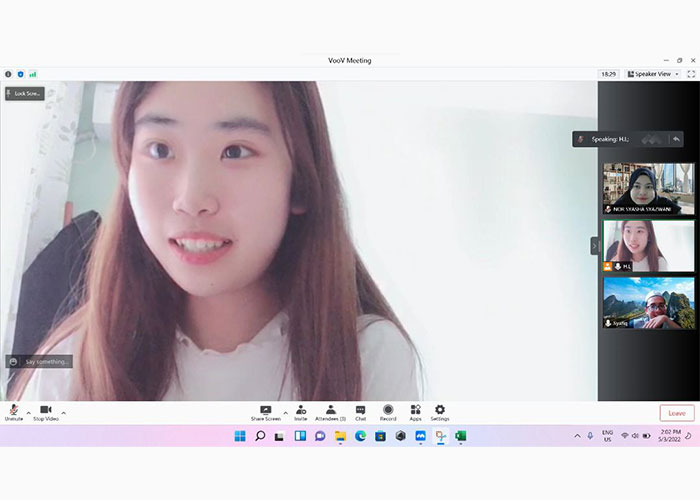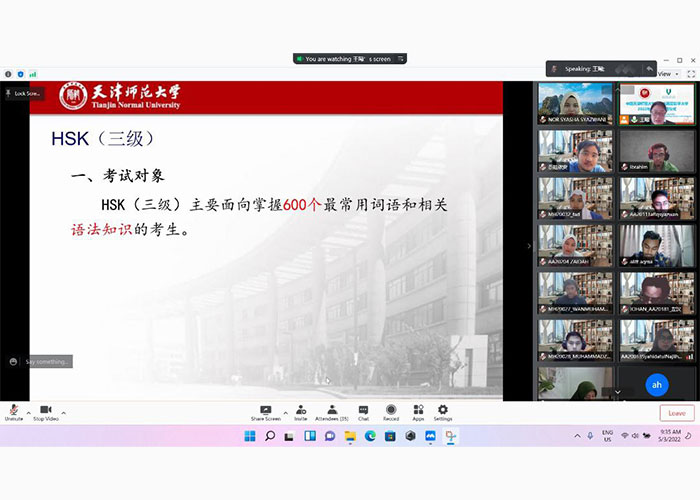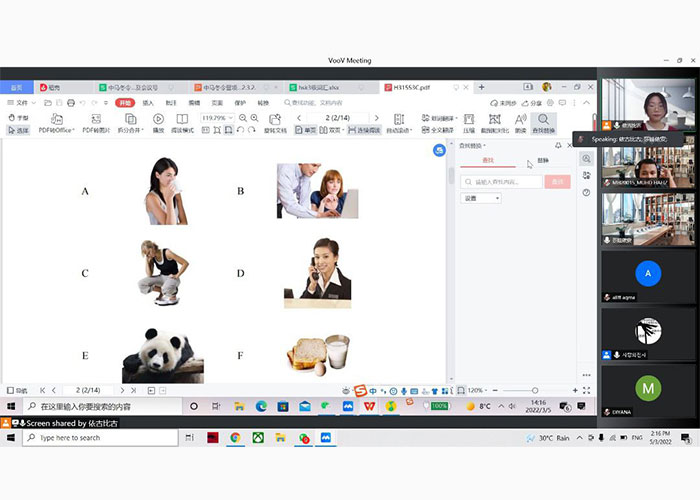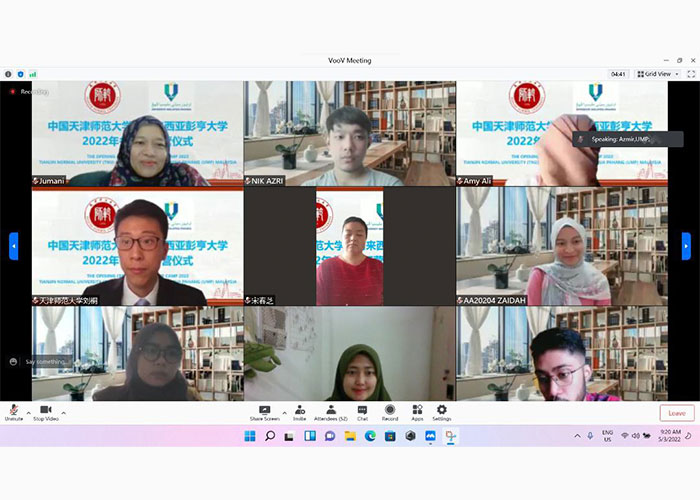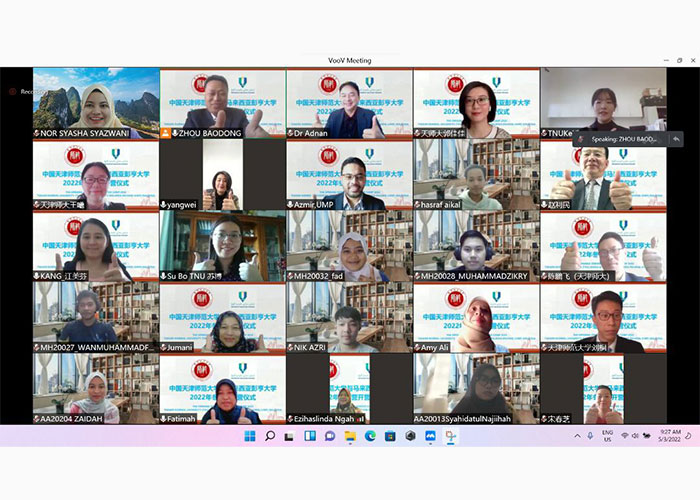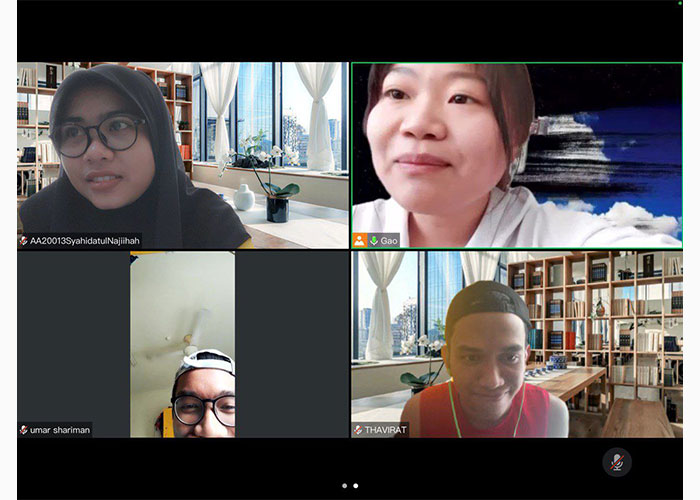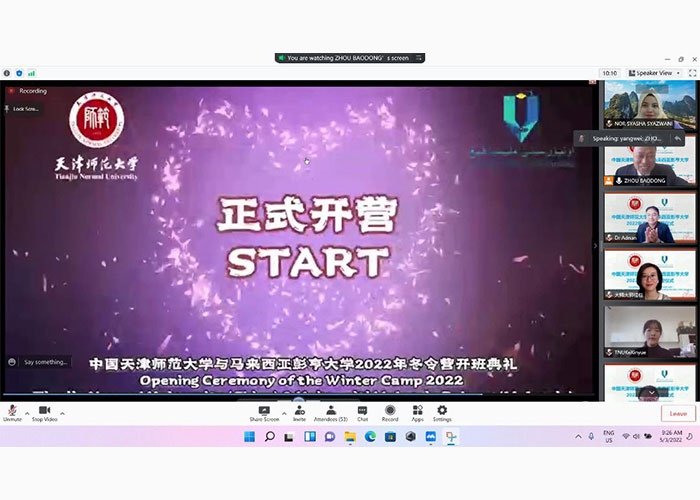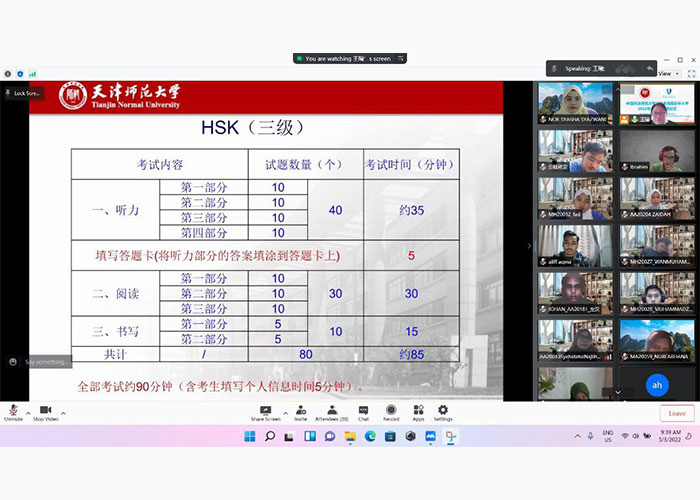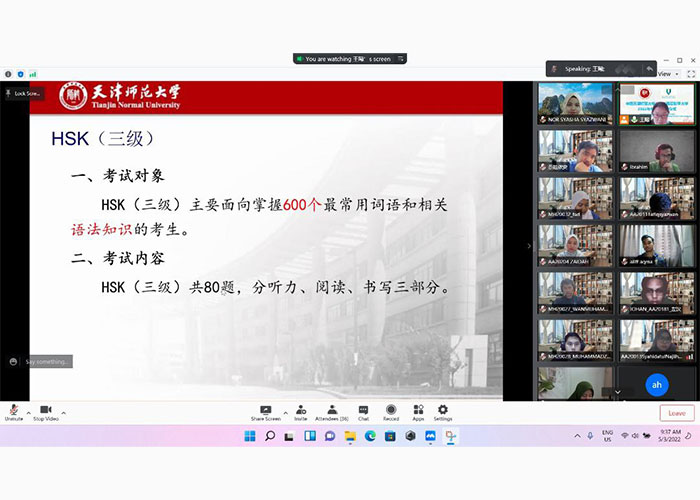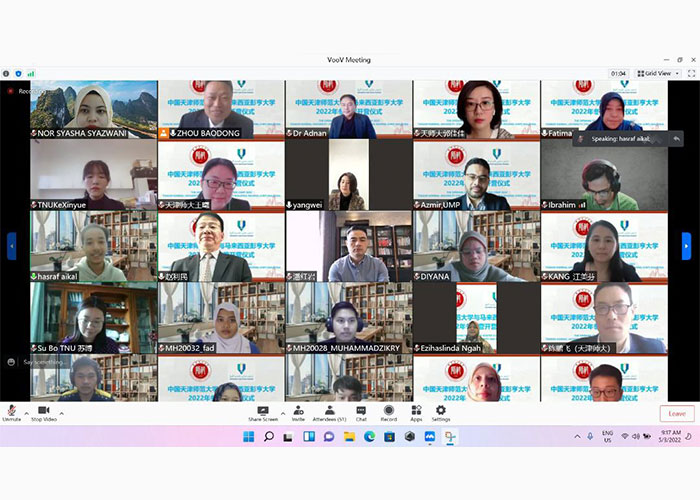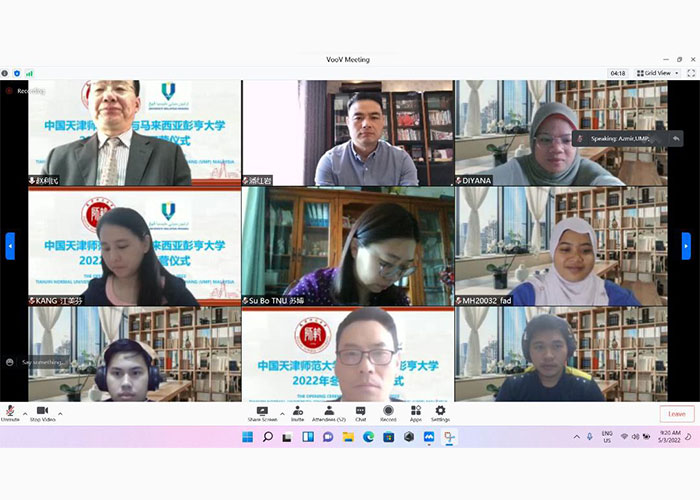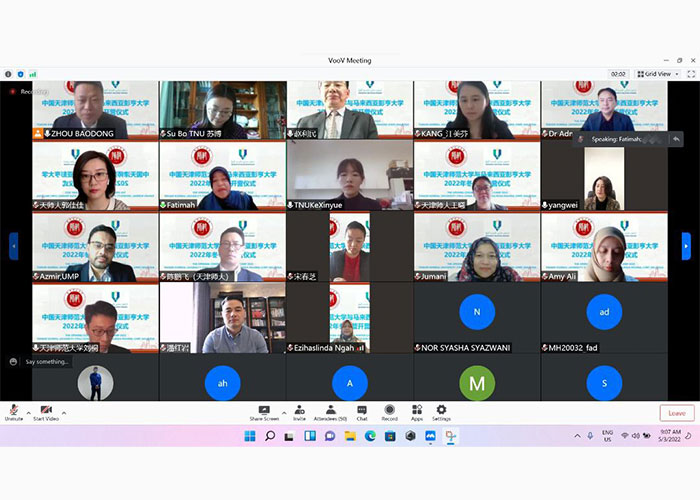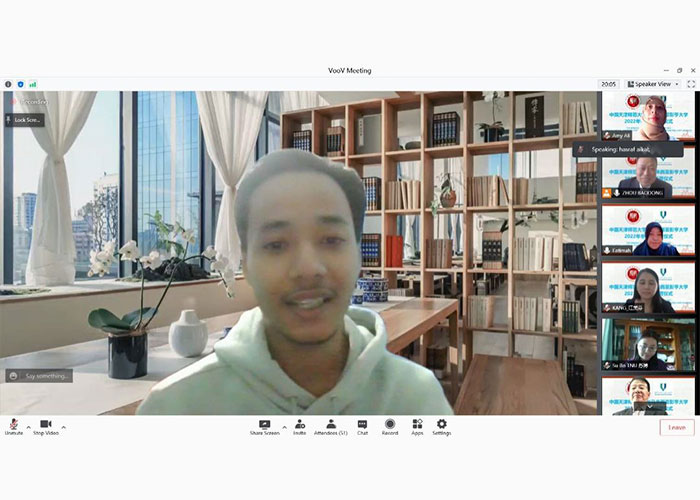MANDARIN VIRTUAL WINTER CAMP 2022 – TWO WORLDS CONNECTED ONLINE
6 March 2022 – Universiti Malaysia Pahang through its Centre for Modern Languages (CML) and Centre for International Relations (CIR) successfully organized a two-day virtual winter camp in collaboration with Tianjin Normal University (TNU), which was held from 5 to 6 March 2022 via Voov. The camp was joined by 31 students from Universiti Malaysia Pahang who are currently doing their dual degree programme. These students need to pass their Hanyu Shuiping Kaoshi (HSK) level 3 in order for them to pursue their studies in China.
The Mandarin Virtual Winter Camp commenced with the opening ceremony at 9:00 a.m. hosted by Prof. Zhou Baodong, Vice Dean, TNU and Ms. Kang Mei Feng, Mandarin Language Teacher, CML, UMP. Dr. Fatimah Ali, Deputy Dean of Academic, Centre for Modern Languages (CML), gave a warm speech inspiring the participants to never give up learning which, according to a Chinese saying, is akin to climbing a mountain. Once at the top, the view from the peak is worth all the effort.
Prof. Zhao Limin, Dean, College of Chinese Language and Literature of TNU welcomed students to the camp and hoped that they would gain much from the camp too. This was followed by the students’ representative of UMP, Muhammad Hasraf Aikal Khairul Ihsan who impressed the audience by presenting in Mandarin, expressing thanks to UMP and TNU for organising the camp.
Similarly, Assoc. Prof. Dr. Mohd Azmir Mohd Azhari, Director, Centre for International Relations (CIR), UMP mentioned that although the camp was virtual, students would benefit greatly and when they study in Beijing later, Tianjin being just a short distance away, participants could meet their camp trainers in person. Also present in this virtual winter camp was Prof. Yang Wei, Director, International Programs of TNU, who officiated the camp and wished for the participants well-being and success.
The camp officially took off with a lecture conducted by Ms. Wang Xi which lasted until noon. The participants learned the format of the HSK examination that they will need to take to pursue their dual degree programme in China. Subsequently, the students were taught how the HSK exam would be conducted by answering past HSK examination questions. Answering the past HSK examination questions helps the students to refresh their Mandarin language as well as get the feeling of the real HSK examination.
After the lunch break, the students were divided into small groups of 2-3 students per group for the practical session. These sessions were conducted by 15 volunteer students. In the practical session, by interacting with the TNU student volunteers, participants had the chance to speak and listen to the Mandarin language of native speakers. From here, the participants can familiarise themselves with the Mandarin spoken in China, and correct their pronunciation of words. These sessions ended at 4:15 pm.
The second day of the programme also began with a lecture, this time conducted by Ms. Song Chun Zhi. Participants learned how to read Chinese passages in the right tone followed by answering the HSK examination questions to make them familiar with the format of the exam. After lunch, the participants broke into smaller groups for the practical sessions handled by TNU student volunteers, similar to the previous day. The programme called it a day at 4:15 pm sharp and the participants bade farewell to their student teachers cum newly gained friends.
All in all, everyone had a wonderful and fruitful time with this programme, despite the pandemic and the short duration of the programme. Virtual Camps such as these can surely help the students to improve their foreign language skills with a bona fide prospect as they are given the opportunity to use the language and interact with others, especially native speakers of the language. This will build their confidence to use Mandarin and indirectly motivate them to learn harder.
Prepared by: Kang Mei Feng and Dr. Wan Jumani Fauzi

